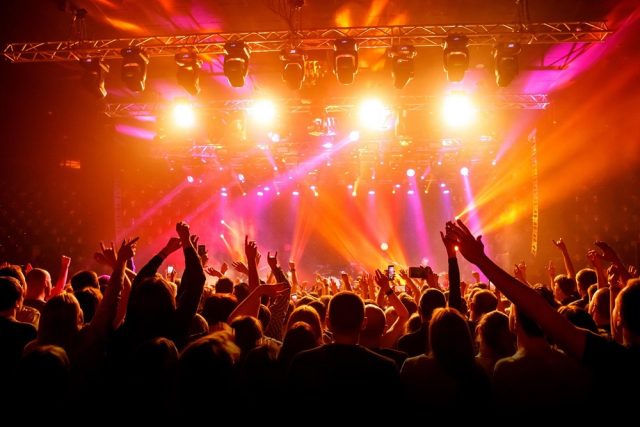
Prolonged exposure to loud sounds can make you prone to hearing loss — even exposure to some of the most common sounds many of us hear daily. The grating train or subway noises that define your commute can reach 90 decibels (dB) — significantly loud, considering that noises greater than 85 dB are harmful. Leafblowers and snowmobiles often reach 115 dB, and live music can reach 130 dB. Gunshots and sirens are typically 140 dB or greater.
You’ll know a sound is too loud if hearing it causes ear pain or, while it blares, you can’t hear those around you. Post-exposure symptoms include ringing ears or muffled hearing. If this difficult hearing persists, you are regularly exposed to some of the loud noises described above, and you find yourself asking people to speak more loudly, slowly, or clearly, you might have noise-induced hearing loss.
The good news is that you can proactively avoid noise-induced hearing loss and address any hearing loss you already have. Although there’s no cure for hearing loss, there are easy ways to bridge the gap – learn all about noise-induced hearing loss below.
How can loud sounds cause or worsen hearing loss?
Higher-decibel (louder) sound waves carry more energy. These vibrations (all waves, whether light or sound, vibrate) carry more force when they’re more energetic. The result is that, when high-decibel sounds enter your ear, they have the potential to cause more damage. This can result in what’s called noise induced hearing loss.
This damage occurs in the hair cells lining your ear canal. These cells receive the vibrations that accompany sound waves. They also transmit these vibrations to your brain, which interprets them as sounds. The problem is that, unlike most other cells in our bodies, hair cells don’t grow back once they die. And since high-energy (loud) sound waves can damage and even destroy hair cells. These hair cells cannot grow back, so damaging them can result in permanent hearing loss.
How to protect your hearing
The notion of hearing-induced hearing loss sounds worrisome, but it shouldn’t stop you from doing your job or enjoying your hobbies. The steps you can take to reduce your chances of noise-induced hearing loss are all easy, and they change little about your daily life. They include:
- Wearing earplugs at loud music shows or events. This step is especially easy to take if you keep earplugs on you at all times. You should also avoid standing right next to any speakers in the venue. You can buy earplugs over the counter at any pharmacy or get fitted for custom earplugs.
- Wearing earmuffs if you work with loud devices such as power tools. You want large, bulky earmuffs that look like professional headphones. These devices are engineered to mask loud sounds. You can find them at hardware stores, and custom models are available through an audiologist.
- Using quieter tools if possible. You can find many options on the National Institute for Occupational Safety and Health’s Buy Quiet list.
- Turn down the volume. Whether you’re listening to music in headphones or enjoying your favorite TV on speakers, you should adjust the volume so it’s just enough to hear — not that it’s blaring in your direction. Going even a tad louder can be enough to cause hearing loss.
- Take breaks. When you pause your listening session or step back from noisy work, you reduce your exposure to loud sounds. If you find yourself consistently exposed to loud noises with no protection, you should avoid sounds louder than conversation for 12 to 16 hours afterward.
How to address noise-induced hearing loss
The journey toward restoring your hearing is hassle-free. You can start by scheduling a hearing test with an audiologist. Hearing tests are pain-free and non-invasive, and they’re also easy – you’ll just listen to sounds or spoken words, then react to them as instructed. You’ll see your results on an audiogram that shows the extent of your hearing loss.
Your hearing test can determine the extent of your hearing loss, but it can’t restore your hearing. That’s where hearing aids come in. Hearing aids amplify all sounds that enter the ear, and this volume boost bridges the gaps that hearing loss causes. Many models now offer app-controlled tools that help you adjust hearing in certain situations as needed, and they can be tuned remotely by your audiologist, avoiding making additional appointments. Plus, many hearing aid models are discreet, as these models fit entirely inside the ear or out of view behind it.
Hearing aids are available at many audiology practices, including here at I Love Hearing. Our hearing aid specialists make choosing your hearing aid and properly fitting it easy as could be.
Contact I Love Hearing about noise-induced hearing loss
Whether you spend all day working around loud noises or just love listening to live music, it’s never too soon to prevent or address hearing loss. On the latter front, we at I Love Hearing are eager to help. Visit our offices in Long Island for expert help from audiologists and hearing aid specialists who have spent decades working with all kinds of hearing loss. We’ll test anyone of any age for noise-induced hearing loss and work with you to create a treatment plan. In fact, if you book an appointment for yourself, we will test the hearing of the person who accompanies you to your appointment, free of charge!
Contact I Love Hearing now to book an appointment for your noise-induced hearing loss. Living with hearing loss can feel tough, but in our hands, you’ll once again hear the world around you in all its glory.